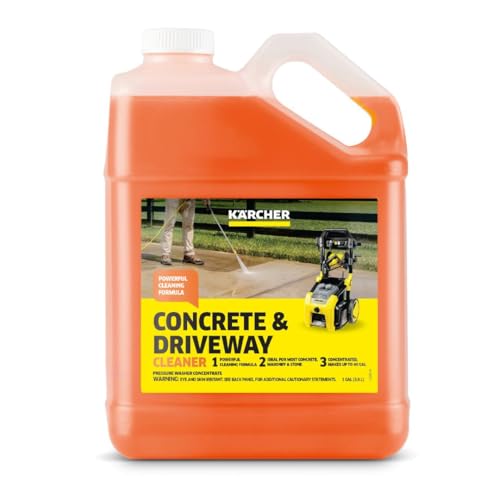If you’re looking for an eco-friendly and cost-effective way to spruce up your outdoor space, cleaning pavers with vinegar might just be the solution you’ve been searching for. With just a few simple steps, you can restore the beauty of your walkways and patios without harsh chemicals or expensive cleaners.

In our upcoming article, we’ll guide you through the process of using vinegar to clean your pavers effectively. From preparing the solution to applying it to your outdoor surfaces, we’ll cover all the tips and tricks you need to know to achieve a sparkling finish.
Join us as we explore this natural cleaning method that not only keeps your pavers looking great but also helps you embrace a more sustainable approach to home maintenance.
Understanding the Basics of Paver Cleaning
The Nature of Pavers
When it comes to outdoor spaces, pavers are a popular choice for their durability, aesthetic appeal, and versatility. These hard surfaces provide functional pathways, patios, and driveways, enhancing the overall design of a landscape. As landscape designers, we understand that maintaining the cleanliness of pavers is essential to preserving their beauty and integrity over time.
Why Vinegar?
In our practice, we often recommend vinegar as a natural alternative for cleaning pavers. Vinegar, a common household item, offers various benefits that make it an excellent choice for this task. Its acidic nature helps to break down dirt, grime, and mildew that can accumulate on pavers without causing harm to the environment. Moreover, vinegar is a cost-effective solution that eliminates the need for harsh chemicals, aligning with our commitment to sustainable and eco-friendly landscaping practices.
Preparing to Clean Your Pavers
Safety Measures
When it comes to cleaning pavers with vinegar, ensuring safety is paramount. We prioritize safety by recommending that you wear appropriate protective gear such as gloves and eye protection. This simple step can help prevent any potential irritation from the vinegar solution. Additionally, ensure proper ventilation in the area where you’ll be working to avoid inhaling excessive fumes. It’s essential to keep pets and children away from the cleaning site during the process to maintain a safe environment for everyone involved.
Gathering the Necessary Supplies
Before diving into the paver cleaning task, it’s crucial to gather all the supplies you’ll need. We suggest having the following items on hand to streamline the cleaning process:
- Vinegar: Opt for white vinegar, a potent yet eco-friendly cleaning agent.
- Water: Dilute the vinegar with water to create a gentle cleaning solution.
- Spray Bottle: Use a spray bottle for easy application of the vinegar solution.
- Scrubbing Brush: Have a stiff-bristled brush on hand to effectively scrub the pavers.
- Protective Gear: Ensure you have gloves and eye protection for safety.
- Bucket: Use a bucket to mix the vinegar solution and water.
- Broom: Have a broom available to sweep away debris before cleaning.
- Protective Covering: Consider using a tarp or plastic sheet to protect surrounding plants or surfaces.
By gathering these essential supplies beforehand, you’ll be well-prepared to embark on the paver cleaning process using vinegar effectively.
The Cleaning Process Explained
Creating the Vinegar Cleaning Solution
When it comes to maintaining the beauty of outdoor pavers, we opt for eco-friendly solutions such as vinegar to ensure both effectiveness and environmental friendliness. To create the vinegar cleaning solution, we simply mix equal parts of white vinegar and water in a spray bottle. This mixture harnesses the acidic properties of vinegar to break down dirt, grime, and even moss that may have accumulated on the pavers over time.
Step-by-Step Guide to Cleaning Pavers with Vinegar
We understand the importance of a structured approach when it comes to cleaning outdoor pavers with vinegar. Here’s a simple step-by-step guide that we follow:
- Prepare the Area: Before starting the cleaning process, we ensure the pavers are free of any debris or loose dirt. This can be done by sweeping the area with a broom to create a clean surface for the vinegar solution to work effectively.
- Apply the Vinegar Solution: Using the spray bottle containing the vinegar and water mixture, we generously spray the solution onto the pavers, ensuring thorough coverage of the affected areas. The acidic nature of vinegar helps to loosen and dissolve dirt and stains.
- Scrub the Pavers: With a scrubbing brush, we work the vinegar solution into the pavers, focusing on stubborn stains or areas with heavy buildup. The scrubbing action, coupled with the vinegar, helps to lift off dirt and grime effectively.
- Allow Dwell Time: After scrubbing, we let the vinegar solution sit on the pavers for about 15-30 minutes to allow it to penetrate and further break down any remaining residue. This dwell time enhances the cleaning process for a more thorough result.
- Rinse with Water: Finally, we rinse the pavers thoroughly with clean water to remove the vinegar solution, dirt, and any loosened debris. This step ensures that the pavers are left clean and residue-free, ready to showcase their renewed appearance.
By following these steps diligently, we ensure that the pavers receive a deep and effective clean, restoring their beauty and enhancing the overall appeal of the outdoor space.
Aftercare and Maintenance
As landscape designers, we understand that maintenance is key to preserving the beauty of outdoor spaces. After cleaning pavers with vinegar, rinsing and drying them is essential to ensure lasting results.
Rinsing and Drying the Pavers
Once the cleaning solution has had time to break down dirt and grime, we recommend rinsing the pavers thoroughly with clean water. A garden hose or pressure washer can be used for this purpose. Ensure that all traces of the vinegar solution are washed away to prevent any residue buildup.
After rinsing, drying the pavers is crucial. Allow the pavers to air dry completely before walking or placing any items on them. This step helps prevent streaks or water spots from forming on the surface, maintaining the pavers’ clean appearance.
Maintaining Pavers Post-Cleaning
To maintain the cleanliness and longevity of your pavers, regular maintenance is necessary. Here are some tips to keep your outdoor space looking its best:
- Sweep: Regularly sweep the pavers to remove debris and prevent buildup.
- Weed Control: Keep weeds at bay by removing any growth that emerges between the pavers.
- Sealing: Consider sealing the pavers to protect them from stains and enhance their color. Consult a professional for the best sealer for your pavers.
- Routine Cleaning: Schedule regular cleaning sessions to prevent dirt and grime from accumulating on the pavers.
By maintaining your pavers properly, you can extend their lifespan and enjoy a pristine outdoor environment for years to come.
Advantages of Using Vinegar
As landscape designers, we realize the numerous benefits of utilizing vinegar for cleaning pavers. Let’s delve into why it’s a fantastic choice for maintaining the beauty of outdoor spaces.
Eco-Friendly Cleaning
When it comes to cleaning outdoor pavers, opting for vinegar provides us with a sustainable and eco-friendly solution. Vinegar is a natural substance that doesn’t contain harsh chemicals, making it safe for the environment. As landscape designers, we prioritize eco-conscious practices, and vinegar aligns perfectly with our commitment to sustainability. By choosing vinegar as our cleaning agent, we contribute to a healthier outdoor environment while effectively maintaining the cleanliness of the pavers.
Cost-Effectiveness and Accessibility
Another significant advantage of using vinegar for paver cleaning is its cost-effectiveness and easy accessibility. Vinegar is a budget-friendly alternative to commercial cleaning products, helping us save on costs without compromising on quality. Moreover, vinegar is readily available in most households, making it a convenient option for regular paver maintenance. As landscape designers, we appreciate practical solutions that are both affordable and easy to acquire. With vinegar, we can achieve optimal cleanliness and upkeep for outdoor pavers without breaking the bank.
« Uncover the Ultimate Paver Sellers Revealed: Home Depot vs. Online Stores Unveiling the Ultimate Secrets: 5 Genius Ways to Detect Sealed Pavers – Never Miss a Beat »
Potential Drawbacks and Cautions
When Not to Use Vinegar on Pavers
When maintaining outdoor pavers, it’s crucial to exercise caution and consider scenarios where vinegar may not be the ideal cleaning solution. While vinegar is generally a safe and effective option, there are specific instances where alternative methods should be employed. One significant consideration is avoiding the use of vinegar on natural stone pavers, such as limestone or marble, as the acidity of vinegar can damage these surfaces over time. In such cases, it’s best to opt for neutral pH cleaners specifically designed for delicate stone materials to prevent adverse effects and ensure the longevity of your pavers.
Dealing with Tough Stains
Despite vinegar’s effectiveness in removing common stains, tougher or deeply ingrained stains may require additional intervention. For stubborn stains like grease or oil, it’s essential to address them promptly to prevent permanent discoloration or damage to the pavers. In these instances, we recommend using specialized stain removers or poultices that are formulated to target specific types of stains without compromising the integrity of the pavers. It’s important to follow the manufacturer’s instructions carefully and test any new cleaning products on a small, inconspicuous area of the pavers before applying them to the entire surface to ensure compatibility and minimize the risk of adverse reactions.
Conclusion
Cleaning pavers with vinegar offers a sustainable and cost-effective solution for maintaining outdoor spaces. By following proper aftercare and maintenance practices, we can ensure the longevity and aesthetic appeal of our pavers. While vinegar is a versatile cleaner, it’s essential to be cautious with delicate stone surfaces and consider alternative options for tough stains. Embracing eco-friendly cleaning methods not only benefits our outdoor environment but also contributes to a healthier and greener lifestyle. Let’s continue to prioritize sustainable practices in our landscape maintenance routines for a cleaner and more beautiful outdoor space.












